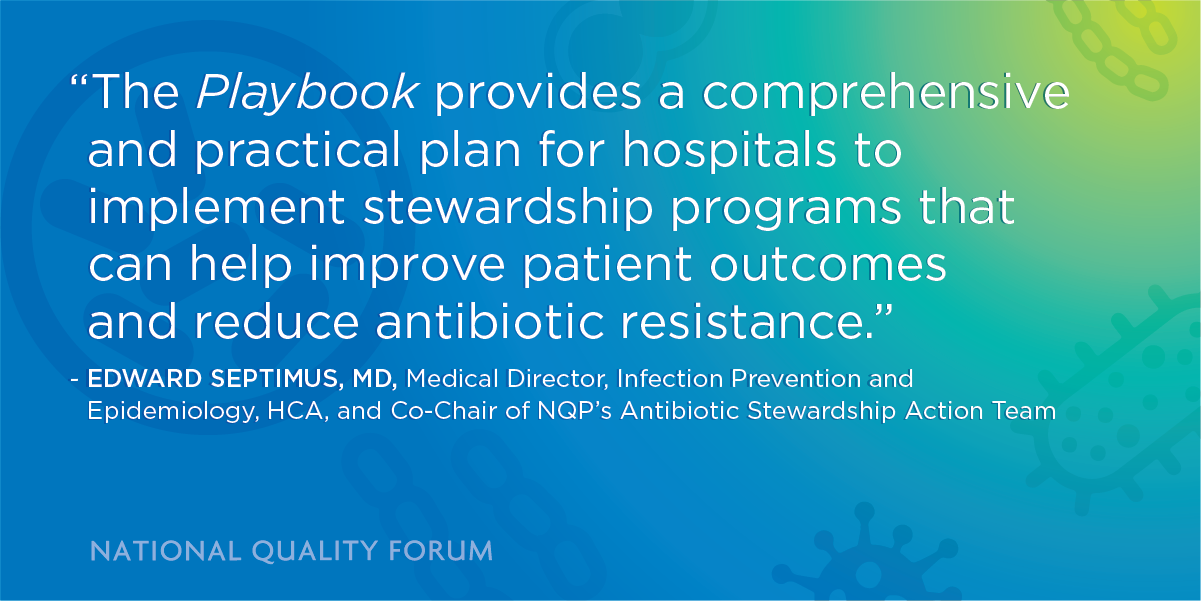Other Categories
In May 2016, leading experts from both the public and private sectors released an important tool to help acute-care hospitals in the United States implement strategies to promote appropriate, safe use of antibiotics. We are pleased to share that The Peggy Lillis Foundation (PLF), along with over 25 other experts participated in a Antibiotic Stewardship Task Force convened by The National Quality Forum (NQF). Chaired by Dr. Arjun Srinivasan of the Centers for Disease Control and Prevention (CDC), and Dr. Ed Septimus of the Hospital Corporation of America (HCA), the Task Force created a guide for hospitals to significantly reduce antibiotic misuse and overuse. The result is Antibiotic Stewardship in Acute Care: A Practical Playbook, a national call-to-action to address and attempt to mend the antibiotic crisis in the U.S.

Antibiotics are precious drugs used to treat serious infections. But there is a downside — decades of overprescribing and misuse have resulted in bacteria becoming increasingly resistant to antibiotics. The result is a growing threat of new superbugs that are difficult, and sometimes even impossible to treat.
According to the CDC, antibiotic resistant infections like Methicillin-resistant Staphylococcus aureus (MRSA) and Carbapenem-Resistant Enterobacteriaceae (CRE) that cause two million illnesses and 23,000 deaths annually. Additionally, antibiotic overuse and misuse contribute to the spread of C. diff infections which can be life-threatening.
In 2014, the CDC recommended that all acute-care hospitals in the U.S. implement an antibiotic stewardship program to lead efforts to improve appropriate and necessary antibiotic use.
The development of the Playbook stemmed from the need to serve hospitals with a concrete tool to meet standards and guidelines meant to decrease the number of resistant infections. The Playbook provides practical strategies for hospitals to execute stewardship programs that can help reduce antibiotic overuse and, therefore, resistance.
The Playbook includes real-world examples of strategies to create effective antibiotic stewardship programs that meet the needs of their communities. These examples include team-wide, systematic approaches to the following:
- assessing when patients need antibiotics
- deciding when treatment should be adjusted
- educating staff, family, and patients about appropriate antibiotic use
- tracking and reporting antibiotic prescribing, use, and resistance
Antibiotic Stewardship in Acute Care: A Practical Playbook is designed to help hospitals and health systems reinforce existing antibiotic stewardship initiatives or create antibiotic stewardship programs from the very beginning. PLF has been instrumental in the development and launch of the antibiotic stewardship Playbook and is excited to see just how beneficial the resource will be to patients and healthcare providers, alike.




Leave a Reply